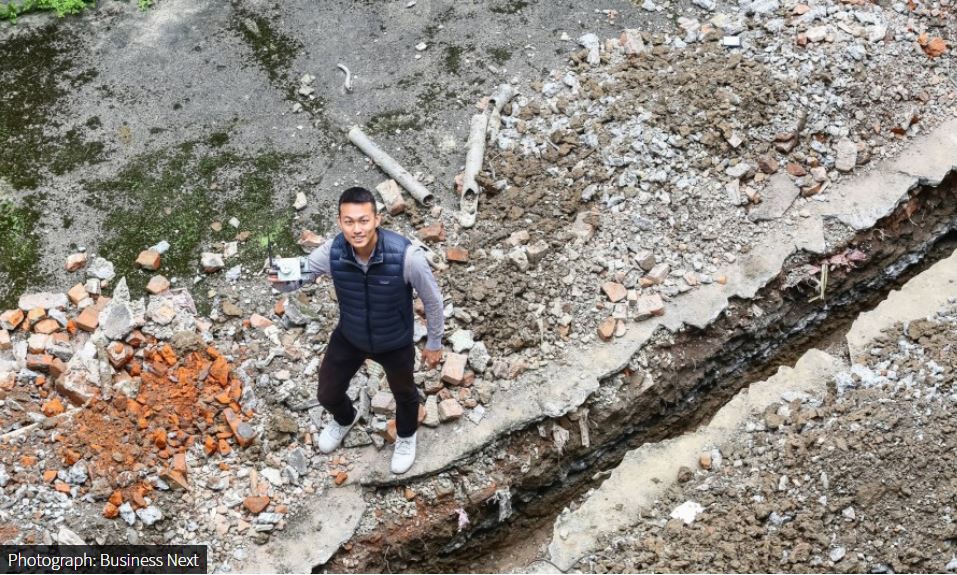Forbes 30 Under 30 honoree Ray Chiu raises $5M for his biotech startup Calyx

In July, 2014, when a series of natural gas explosions ripped through the city of Kaohsiung overnight, Ray Chiu was in California studying for his Master’s degree at UC Berkeley. Disconcerted, he called the relatives who live not far from the area where the deadly disaster occurred. He had stayed at their apartment during the months of military service.
As these scenes of devastation stamped on his memory, he made up his mind to optimize the existing solution for chemical detection. Five years later, he landed a spot on the Forbes “30 Under 30" list in energy for the success of his startup Calyx (renamed, formerly BioInspira), the first ever company to build gas sensor with bacteriophage, a virus that infects and replicates within bacteria.
Calyx has so far raised a $5M seed round from venture capitalists from Hong Kong, Taiwan, Korea, and the US, making its founder a bright shining star among the legions of Taiwanese entrepreneurs based in Silicon Valley.
Phage, explained
His sensor is based upon phage, a unique type of biomaterial that is reusable and resilient to any temperature and chemicals of any pH values, unlike many other sensors that aren’t designed to withstand harsh conditions in industrial environments. Instead, they’re for laboratory testing only.
It’s true that electrochemical and some biomaterial-based ones can be turned to Internet-connect devices for real-time monitoring, but they don’t last more than one or two years. Thanks to phage, Calyx's sensor can last five to seven years on average. What’s more, the product is highly flexible and customizable because the biomaterial can be genetically modified to detect a certain type of chemical element.
Now, with its so-called “Sensors as a Service Platform,” Calyx serves not only food and HVAC (heating, ventilation, and air conditioning) companies but poultry farms.
“Birds have a respiratory system that are very different from that of mammals. For humans, most of the air we breathe in doesn’t reach our lungs, but for birds, their lungs are constantly ventilated because the air sacs permit,” explained Mr. Chiu. “Their respiratory tract is thus more prone to infection.” Calyx’s gas sensor can ensure the air is healthy enough for the birds to inhale.
Startup for social good
It’s difficult to build connections as a Taiwanese person in the Silicon Valley, Mr. Chiu put it bluntly. “At first, we have to show up at activities and events of all kind to know as many people as possible.” He also recounted the experience of taking part in a meeting as one of the two only Asians in the venue.
And it’s only after given cold shoulder by countless investors did he make it to raise $5M from a few.
Speaking of his journey, Mr. Chiu said the key lies not only in partners but in determination along the way. “Some think one has to have a brilliant idea to startup a business, but I don’t.” For him, startups ultimately “serve the social good,” and for that reason, one should go about turning an idea into action as soon as possible.
In fact, the notion of serving the society is also hidden behind the name of his startup, Calyx, which literally means the outermost whorl of flower parts. “It’s an important structure that protects the flower,” said Mr. Chiu.
“Cal,” in the name, can also signify the University of California, where he started the company in a lab. And the remaining “x” and “y,” associated with the two types of chromosome, imply the potential of the next generation.
In 2020, Mr. Chiu said the most effort will be put into sales promotion and Series A fundraising. “I’ve changed my mindset. It’s no big deal to be rejected,” he said, with a laugh. “I won’t feel that I’m not good enough because I’m not invested.” It’s this fearlessness toward failure, perhaps, that leads to Calyx’s success.
〔Original :Meet Startup @ TW〕
https://meet.bnext.com.tw/intl/articles/view/46037